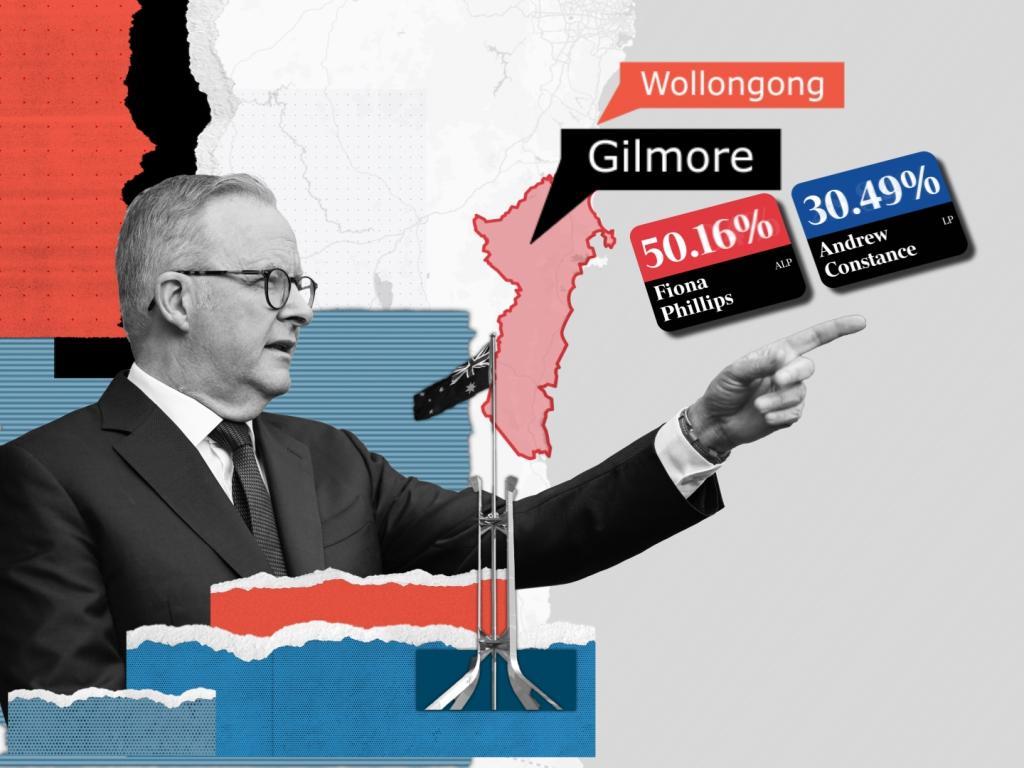RAAF chief ‘very comfortable’ with Labor’s air force plan
Air force chief Stephen Chappell endorsed Labor’s management of the Defence portfolio just hours before Anthony Albanese called the election.

The Chief of the Air Force Stephen Chappell endorsed Labor’s management of the defence portfolio in an extraordinary intervention just hours before Anthony Albanese called a May 3 election, declaring he was “very comfortable” with the government’s plans for the RAAF fleet.
The move came after the air force’s head of capability, Air Vice-Marshal Nicholas Hogan, said an extra F-35 squadron promised by Peter Dutton “would be welcome”.
Air Marshal Chappell followed-up his subordinate’s comment with a statement to The Australian. “I am very comfortable the air combat fleet that is being delivered and supported through the 2024 Integrated Investment Program can deliver a high level of lethality,” the RAAF chief said.

Defence Minister Richard Marles’ office said it had not asked Air Marshal Chappell to issue the statement, while opposition defence spokesman Andrew Hastie declined to comment.
Asked at the Avalon Airshow about Mr Dutton’s F-35 pledge, Air Marshal Hogan said: “Look, more F-35s would be welcome, but we will go with the decisions of the government of the day.”
Both commanders’ comments were highly unusual on the eve of an election announcement given Defence jealously guards its apolitical status.
Defence and national security are looming as key election campaign themes, with Mr Dutton vowing to spend “much more” on weapons and equipment than Labor, including an extra $3bn towards an additional 28 F-35s.

Mr Dutton said the Coalition’s defence funding commitment would be “commensurate with the challenges of our times”, with further details to be revealed during the election campaign.
“We’re going to boost spending for the Australian Defence Force because we live in a very uncertain time,” the Opposition Leader said on Friday. “We’re going to make our suburbs and our towns safer, and we’re going to make sure that we have a focus on border security once again.”
The government opted against boosting military spending in Tuesday’s budget, which revealed Defence is struggling to get new capabilities into service and keep its ageing warships and submarines in the water.
According to the budget papers, just 32 per cent of defence funding goes towards acquiring new weapons and equipment – well under the 42 per cent target Labor wants to hit by the end of the decade.

Mr Marles said the Coalition was all talk while the government was ploughing an extra $57bn into defence over the next decade.
“The gap between what the Liberals say and what they do is immense,” he said. “They are experts at announcement, they are experts at press release, but they are not very good on the detail and they don't back it up with actual procurements and allocations in the federal budget.”
Labor and the Coalition are also at odds on whether Australia should send troops to support a British and French-led peacekeeping force in Ukraine, with Mr Albanese keeping the option open. The Prime Minister confirmed on Friday that Australia had taken part in “coalition of the willing” talks in Paris overnight.
Mr Albanese said Ukraine’s struggle wasn’t just about its own sovereignty.
“I want to make it very clear – Australia stands with Ukraine,” he said. “We regard Vladimir Putin as an authoritarian dictator who has imperialistic designs, not just on Ukraine, but on other countries in the region.”
Mr Dutton has pledged ongoing support for Ukraine if he wins the election, but argues the provision of peacekeeping troops is a job for Europe.
Mr Albanese warned any foreign countries considering meddling in the election campaign to “back off”. “Our Australian Defence Force, our Australian security agencies, they’re still in place. We’re a resilient country,” he said.






To join the conversation, please log in. Don't have an account? Register
Join the conversation, you are commenting as Logout